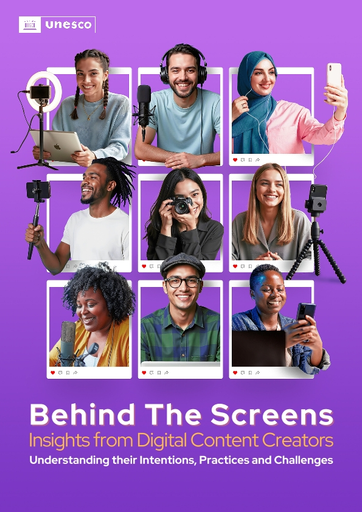A UNESCO study reveals that 62% of influencers don’t verify information before sharing, raising concerns about misinformation spread and public trust in online content.
- Lack of Fact-Checking:
- 62% of surveyed influencers do not verify information before sharing it.
- Only 37% use fact-checking sites, while 42% rely on the popularity of content to gauge credibility.
- Trusted friends and personal experiences are common sources of information.
- Self-Perception vs. Reality:
- Despite minimal verification efforts, 69% of influencers believe they promote “critical thinking and digital literacy.”
- Influencers often lack formal training in assessing source credibility, unlike journalists.
- Influencers as News Sources:
- Almost 40% of young Americans (18-29) get news from influencers, according to Pew Research.
- These influencers lack the journalistic rigor needed to verify claims or sources, contributing to the spread of misinformation.
Broader Implications:
- Political and Social Impact:
- Influencers played a key role in the 2024 U.S. presidential election campaigns for both Donald Trump and Kamala Harris.
- Viral misinformation, such as baseless claims about migrants in Ohio, led to severe community disruptions.
- Foreign Influence:
- A Justice Department indictment revealed that conservative influencers unknowingly received millions from Russian entities to spread divisive narratives.
- Platform Challenges:
- Platforms like Elon Musk’s X and YouTube profit from misleading content while providing limited moderation.
- Meta penalizes but does not remove fact-checked misinformation, allowing it to remain visible.
Recommendations:
- Transparency and Accountability:
- Influencers should disclose funding and sponsorships more consistently; 7% admitted to creating undisclosed sponsored content.
- Improved Media Literacy:
- UNESCO calls for enhanced media and information literacy training for influencers to help them assess source credibility and reduce misinformation spread.
- Platform Policies:
- Social media companies must strengthen moderation and transparency to limit the amplification of misleading content.
As influencers increasingly shape public discourse, their unchecked spread of misinformation poses significant challenges to democratic processes and public trust. Strengthening media literacy and holding both influencers and platforms accountable is essential to mitigate these risks.










